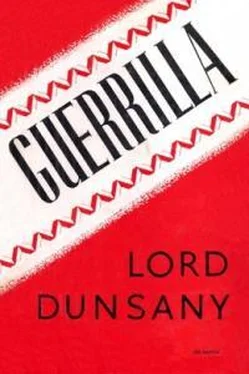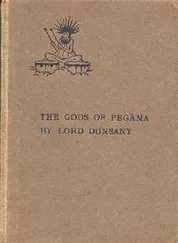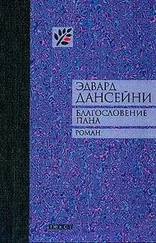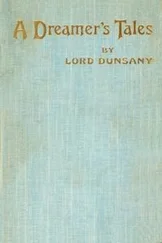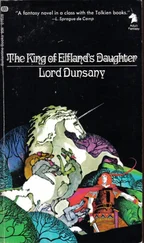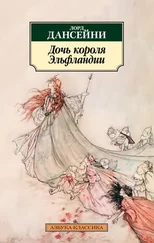Лорд Дансейни - Guerrilla
Здесь есть возможность читать онлайн «Лорд Дансейни - Guerrilla» весь текст электронной книги совершенно бесплатно (целиком полную версию без сокращений). В некоторых случаях можно слушать аудио, скачать через торрент в формате fb2 и присутствует краткое содержание. Год выпуска: 2015, Издательство: epubBooks Classics, Жанр: Прочие приключения, на английском языке. Описание произведения, (предисловие) а так же отзывы посетителей доступны на портале библиотеки ЛибКат.
- Название:Guerrilla
- Автор:
- Издательство:epubBooks Classics
- Жанр:
- Год:2015
- ISBN:нет данных
- Рейтинг книги:5 / 5. Голосов: 1
-
Избранное:Добавить в избранное
- Отзывы:
-
Ваша оценка:
- 100
- 1
- 2
- 3
- 4
- 5
Guerrilla: краткое содержание, описание и аннотация
Предлагаем к чтению аннотацию, описание, краткое содержание или предисловие (зависит от того, что написал сам автор книги «Guerrilla»). Если вы не нашли необходимую информацию о книге — напишите в комментариях, мы постараемся отыскать её.
Guerrilla — читать онлайн бесплатно полную книгу (весь текст) целиком
Ниже представлен текст книги, разбитый по страницам. Система сохранения места последней прочитанной страницы, позволяет с удобством читать онлайн бесплатно книгу «Guerrilla», без необходимости каждый раз заново искать на чём Вы остановились. Поставьте закладку, и сможете в любой момент перейти на страницу, на которой закончили чтение.
Интервал:
Закладка:
To his astonishment Srebnitz saw that Gregor was going. He gazed at him. Gregor had told him nothing of what he was to do, and he had looked to Gregor for the minutest instructions. Hoping yet to be told how to act, he said:
"But how do I get a rifle?"
"You have a knife?" asked Gregor.
"Yes," answered Srebnitz.
And, as Srebnitz said that, Gregor's face lit up with a most charming smile, which lingered upon it as he walked across the room and was shining there still as he went out of the door, looking back into Srebnitz's face.
II
Srebnitz went downstairs to the room where his parents sat, full of his new hopes. "There's an army up in the Mountain," he said. "It will free The Land."
Half an hour earlier his father was telling him there was hope, when he had none. Now he was instructing his father in the same thing, as though it were new. Naturally they did not quite agree: the old man was not going to sit at a desk and be instructed by his son, especially in a matter in which he had so recently been the instructor.
"Who told you that?" his father asked. And when the boy said that it was the brilliant Gregor, he only found that Gregor meant nothing to his father, and that he did not believe in the army. Then he mentioned the name of Hlaka, and that did impress his father. But where was Hlaka? How could he get to him? Suddenly there surged back into Srebnitz's mind the horrible words of Gregor, that they would shoot his father and mother. Srebnitz did not believe it; and that was what Gregor had meant when he had said that he was not yet ready to go to the Mountain. He did not believe it, and yet the thought came back with a deadening shock. For it was a dreadful thing to think of, even though it could not be true. As they talked there came knocks on the door, strangely different from Gregor's knocks. They sounded so angrily impatient that Srebnitz ran to open the door. There was a Prussian major there.
" Heil Hitler ," said Srebnitz.
" Heil Hitler ," replied the major.
It was true then; they did talk like that.
" Sprechen Sie Deutsch? " said the major.
" Nein ," said Srebnitz, for the words they had spoken so far were the only German words that Srebnitz knew. And then the Prussian officer spoke to him with a fairly good accent in his own Near Eastern language.
"I am billeted here," said the officer.
"Won't you come in?" said Srebnitz, for he was of a polite though fierce people, and he brought the officer into the sitting–room. Srebnitz's mother got up from her chair timidly, but the old man refused to move. This man was not his guest, and he came of a free people.
"I am billeted here," said the Prussian officer.
The old man nodded his head; he was powerless to keep the German out.
"We have come to safeguard our own frontiers from aggression," said the officer, "and for the good of your own Land."
The old man turned slightly in his chair, away from the German.
"It is so everywhere," said the German to Srebnitz. "The old have not yet learned, but all the young are for Hitler."
Srebnitz was silent for a few moments, and then he said: " Heil Hitler. "
" Heil Hitler ," repeated the German.
One eyebrow of Srebnitz's father rose slightly; his mother sat silent.
"Show the officer to your bedroom," said his father. "You must sleep here on the floor."
Srebnitz did as his father told him. The German seemed pleased with the room, or with Srebnitz's politeness to him, and almost smiled. He was silent a few moments, evidently thinking what he could do for Srebnitz. Then he said:
"Tell your father and mother to change their minds while there is still time. Now I will go and send round my kit."
And he went amiably down the stairs.
An officer, thought Srebnitz, an officer. He would not have a rifle. And he decided to bide his time.
When Srebnitz went downstairs again his father said to him: "Why did you say that?"
He spoke in a strange grim voice that was new to Srebnitz. Like a judge speaking. As though on behalf of many alive and dead he questioned his son.
And the son replied with the words that Gregor had said to him: "This is not a war, Father. It is guerrilla."
And his father seemed to have understood at once, and said no more, but sat looking into the fire and often smiling quietly. Then Srebnitz remembered that he kept his knife in his room, and went up to get it before the German returned. It was a thin knife, about eight inches long, in a sheath of red leather. It is the usual custom of the people of that land to keep their knives about as sharp as we keep our razors, and Srebnitz's knife was like the rest, but he drew it out and honed it with a little stone, to make sure, and stropped it on leather, until the German came back and knocked with his angry knocks again on the door. Then Srebnitz sheathed his knife and hid it under his clothes; and always after that wore it hung on a strip of leather next to his skin. He ran downstairs and looked in at the sitting–room, on his way to open the door. Perhaps his mother guessed why he went upstairs, or perhaps she merely wondered.
"Did you go upstairs to make the room comfortable for the officer?" she asked.
"Yes," said Srebnitz, "or for one of them. I went to get this."
And he opened his shirt and showed the top of the handle of the knife, a carved piece of wild–sheep's horn inlaid with little pieces of silver wire. His mother nodded, but never said a word. His father saw too, and said nothing. The knocks on the door came again, more angry and longer, and Srebnitz hurried to open the door.
" Heil Hitler ," said Srebnitz.
" Heil Hitler ," replied the officer.
Yes, they had only been parted for little over five minutes, and it was evidently quite correct to say this all over again.
The German had an orderly with him, with both hands full of kit. No rifle amongst it, Srebnitz noticed. This meant that he must get his rifle elsewhere, and he was glad for his parents' sake.
Then he remembered that he had not passed on this man's warning to his parents. He showed the way to the staircase and, leaving the officer to go up with the orderly and the kit, went into the sitting–room. Somehow he could not think of words in which to tell what he had to say, so he repeated the German officer's own words, warning his parents to change their minds while there was still time. But the old man only smiled and slightly shook his head. He would have done the same if invited to play football. He was too old for such changes. His wife smiled a little too, and sighed once, and then they heard the feet of the major returning down the stairs.
One often hears of a typical Englishman, a typical soldier, a typical bus–conductor, but very rarely sees any of these types, and when seen they seem slightly absurd; a typical man is in fact a caricature. But this officer was a typical Prussian officer: his face was large and red, and there were hundreds of red veins in it; his body was very plump, although not fat, except for his neck; and the line of his neck went straight to the top of his head, with no bulge anywhere, except for the fat of the neck. His neck was red like his face, and his moustache was much cared for: one could not say it was well cared for; it was rather as though a man had employed several gardeners to plant nettles and weeds, or wild jungle–growths, in orderly rows in a garden. His moustache was a dark shade of yellow, and his eyes were blue, and there were bright red veins in his eyes, as well as in his face. At first sight of him you thought of a savage from cannibal lands, who had been drinking blood all his life; but that was a first impression that could linger only a moment, for a second glance showed that, far from being a savage, he had been drilled night and day ever since he was eight, and was as far removed from the natural savage as a performing ape that has been all its life in a circus is removed from his happy brothers still at large in the woods. Though he gave orders all day now, he made every movement as though the trainer were still behind him, and the trainer's whip over his head.
Читать дальшеИнтервал:
Закладка:
Похожие книги на «Guerrilla»
Представляем Вашему вниманию похожие книги на «Guerrilla» списком для выбора. Мы отобрали схожую по названию и смыслу литературу в надежде предоставить читателям больше вариантов отыскать новые, интересные, ещё непрочитанные произведения.
Обсуждение, отзывы о книге «Guerrilla» и просто собственные мнения читателей. Оставьте ваши комментарии, напишите, что Вы думаете о произведении, его смысле или главных героях. Укажите что конкретно понравилось, а что нет, и почему Вы так считаете.
